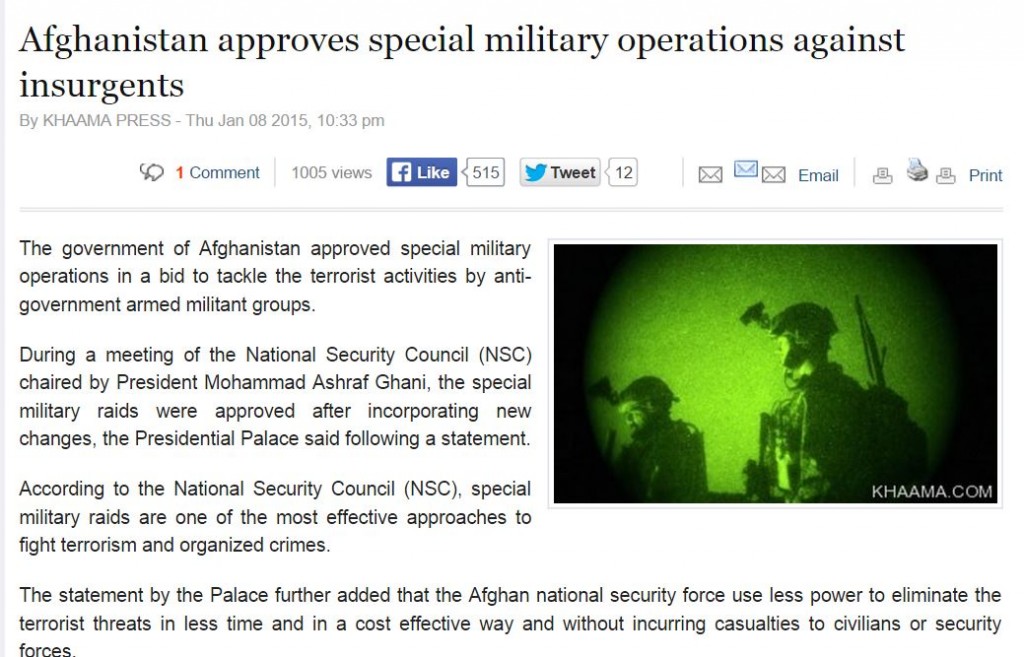Ghani Institutes Night Raids While Facing Treason Accusations Over Absence of Cabinet
Despite the rampant corruption of his administration and his many other faults, Hamid Karzai was a consistent critic of US-led night raids that led to many senseless civilian deaths, disappearances and torture. Those raids, and the US death squads that carried them out, were right at the top of the list of reasons Karzai refused to sign the BSA authorizing the continued presence of US troops in Afghanistan beyond the beginning of this year. Now that Ashraf Ghani has signed the BSA, the US has retained its right to “counterterrorism operations”, meaning that US-led night raids are still authorized despite Barack Obama’s declaration that combat operations have ended (while relying on a semantic sleight of hand in omitting that counterterrorism operations continue).
Ashraf Ghani seems to feel that US-led night raids are not enough, and so he called a meeting of Afhganistan’s National Security Council to authorize more night raids carried out by Afghan forces. Learning from Obama, Ghani has termed these raids “special military operations” rather than the unpopular night raids, but Khaama Press clearly knows that this is about night raids. Here is a partial screen capture of their article on the move, where we see that the chosen illustration for the story is a photo taken at night, showing forces wearing night vision equipment routinely employed in night raids:
Perhaps in a bit of a nod to Karzai’s previous objections to US-led night raids, the article notes:
The Afghan national security forces were instructed to take all necessary measures to respect the Islamic values, the Afghan culture, Afghan constitution and other laws of the country while executing a special military operation.
It’s hard to see how that instruction can be carried out, though, since the ANSF have been trained by US forces whose actions led to those very charges against them by Karzai. Even though Karzai forced the US to sign an “agreement” supposedly reforming US night raids in 2012, Karzai was still complaining about the US violating Afghan homes more than a year and a half later. Ghani is now authorizing these crimes to be committed by Afghan troops as well as US troops.
On a separate front, a number of Afghan Members of Parliament have declared that the failure of the Unity Government led by Ghani to establish a cabinet more than three months after assuming power rises to the level of a charge of treason. Ghani, however, appears to be shrugging off the charge.
With the idea of impeachment already in the air, Ghani’s move to institute night raids by Afghan forces might just provide a stronger basis for moving ahead with charges.


